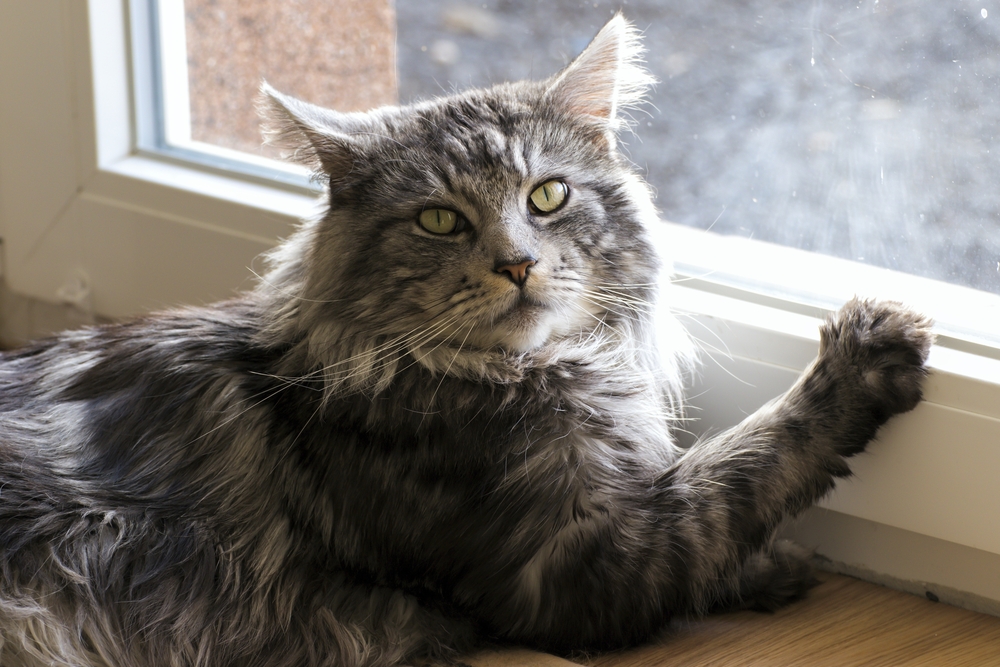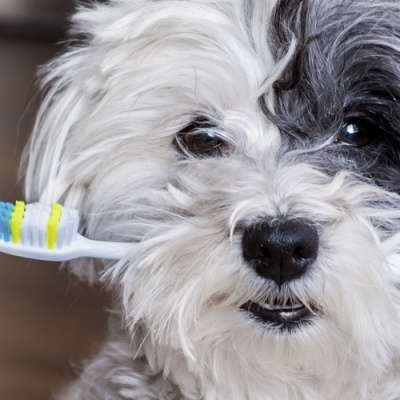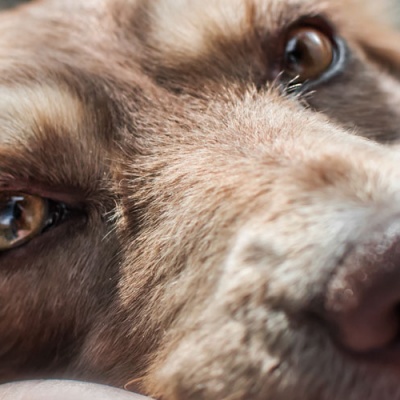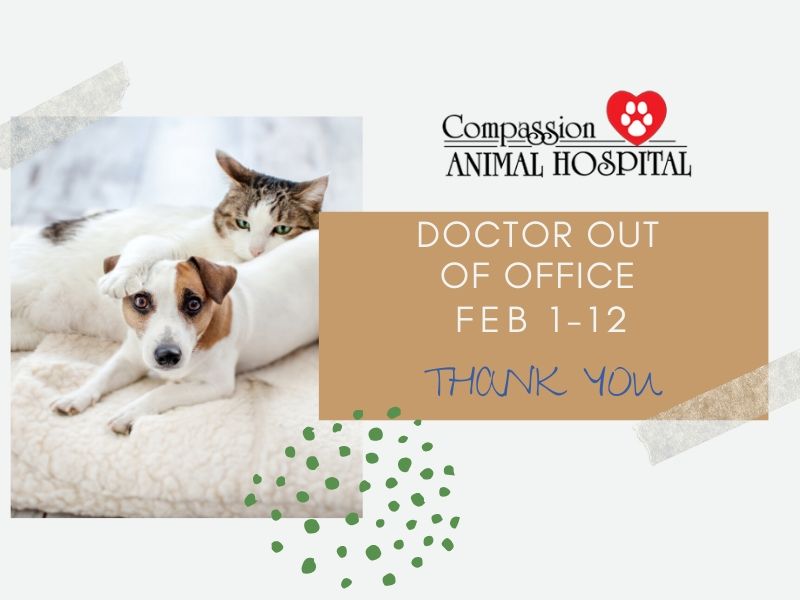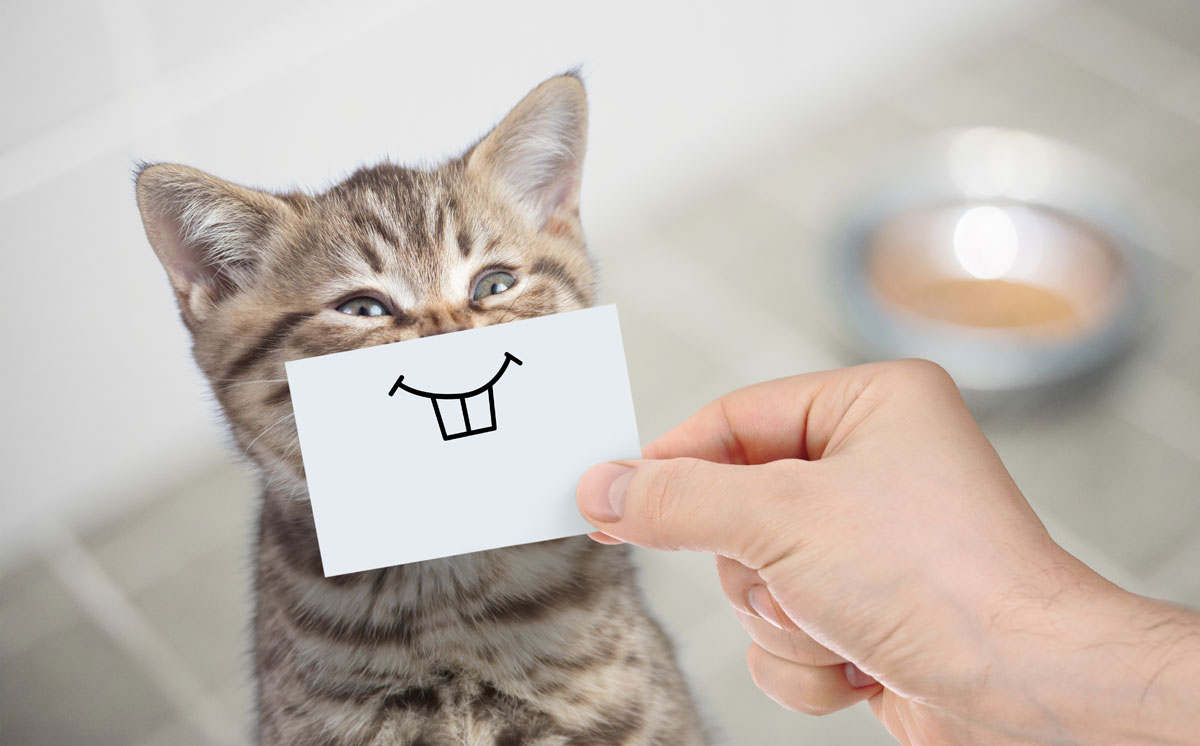
It's National Pet Dental Awareness Month: Why Does Your Pet Need Dental Care?
We know that we have to care for our own teeth or face major health problems. Many of us, however, don’t realize that our pets’ teeth require the same level of care. February is National Pet Dental Month, and Compassion Animal Hospital is celebrating by spreading awareness about the importance of caring for your pet’s teeth.
Why Is Dental Care Important for Pets?
Dogs and cats are at risk of dental disease just like people. In fact, by the time dogs and cats are three years old, they’re highly likely to have already developed some form of gum disease.
Gum disease (periodontal disease) is a bacterial infection of the gums that occurs when plaque hardens, turns into tartar, and accumulates along the surface of the teeth. This buildup creates pockets where harmful bacteria thrive.
Periodontal disease causes persistent bad breath and painful, red, swollen, receding, and bleeding gums in addition to eventual tooth loss. Left untreated, the bacteria from a gum infection can enter the bloodstream and travel throughout the body, causing organ damage and eventually leading to premature death.
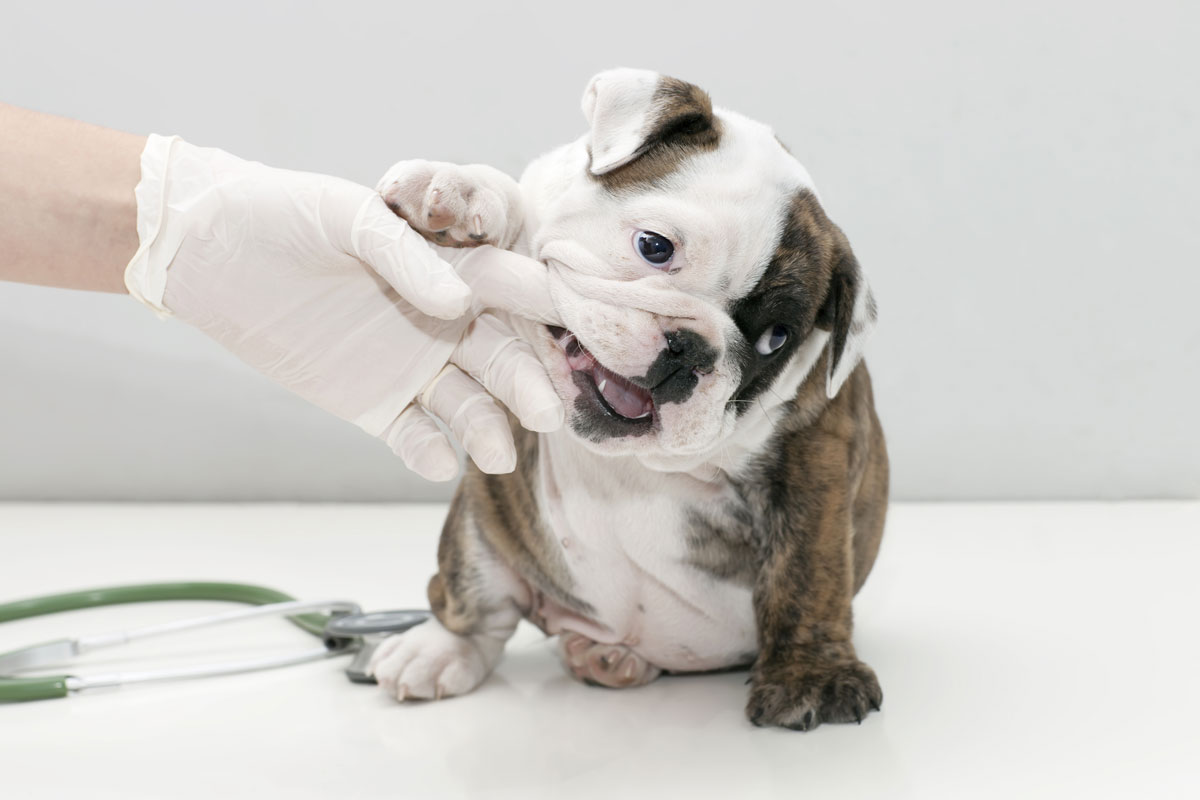
How to Care for Your Pet's Teeth
Pets with the healthiest teeth and gums have a combination of at-home and professional dental care.
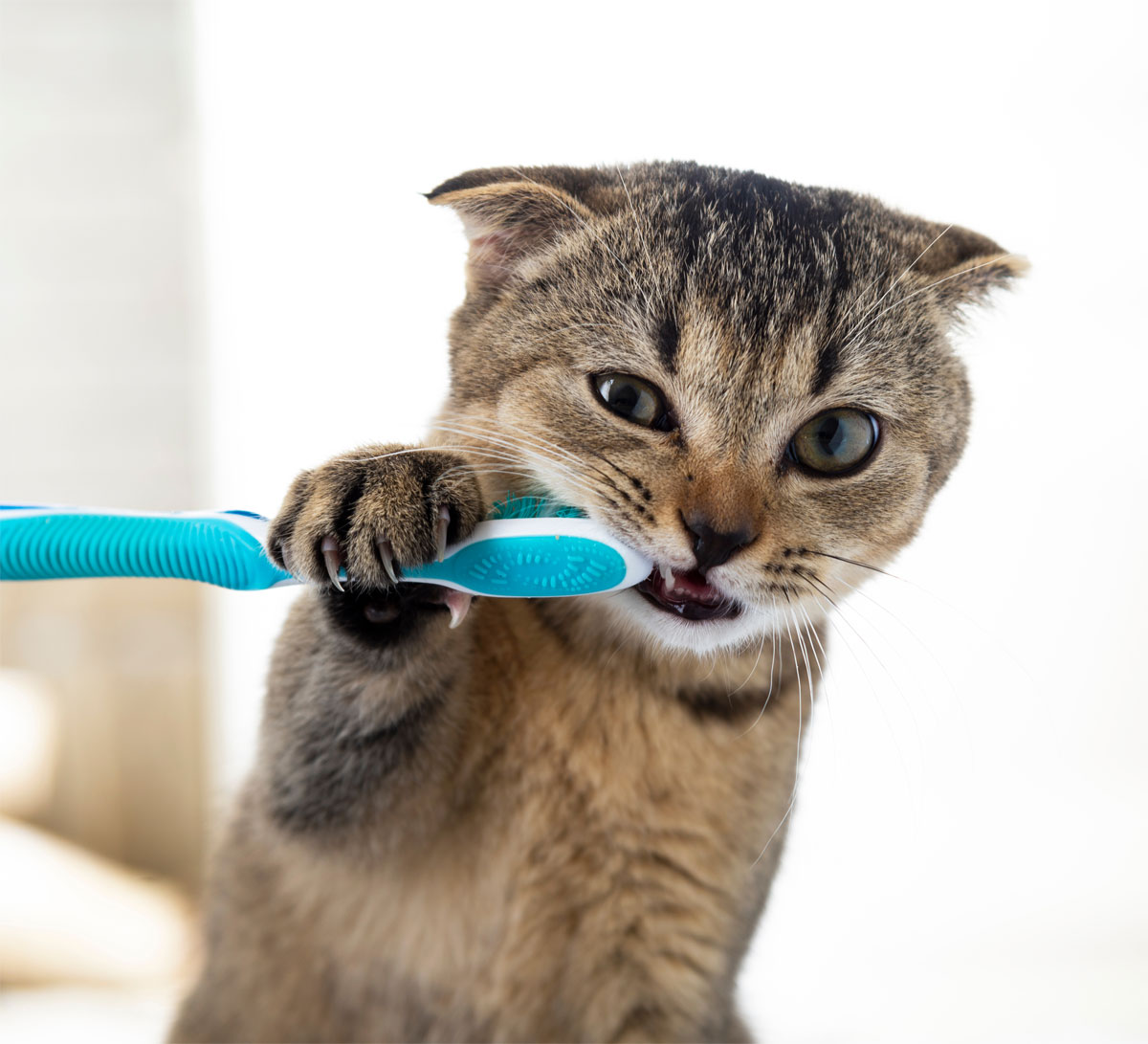
At-Home Pet Dental Care
We strongly encourage pet owners to brush their pets’ teeth using special pet-friendly toothbrushes and toothpaste. If your pet simply won’t tolerate brushing, we recommend trying dental wipes that’ll help you remove some of the plaque from your pet’s teeth.
You can also provide your pet with daily dental treats, chew toys designed to promote dental health, and a dental-friendly diet.
Professional Pet Dental Appointments
While every wellness exam includes a quick look at your pet’s teeth and gums, regular pet dental appointments are essential to maintaining their oral health.
During a pet dental appointment, our veterinarian will scale and polish your pet’s teeth, removing all plaque and tartar buildup. We’ll then perform a thorough examination and might also take a set of dental x-rays to determine whether there are any problems occurring below the gum line or inside the patient’s teeth.
Pet dental exams are similar to human dental appointments – except that they occur with a pet under general anesthesia for their safety and comfort.
To learn more about the importance of dental care for pets or to schedule an appointment for your dog or cat, contact Compassion Animal Hospital today.








